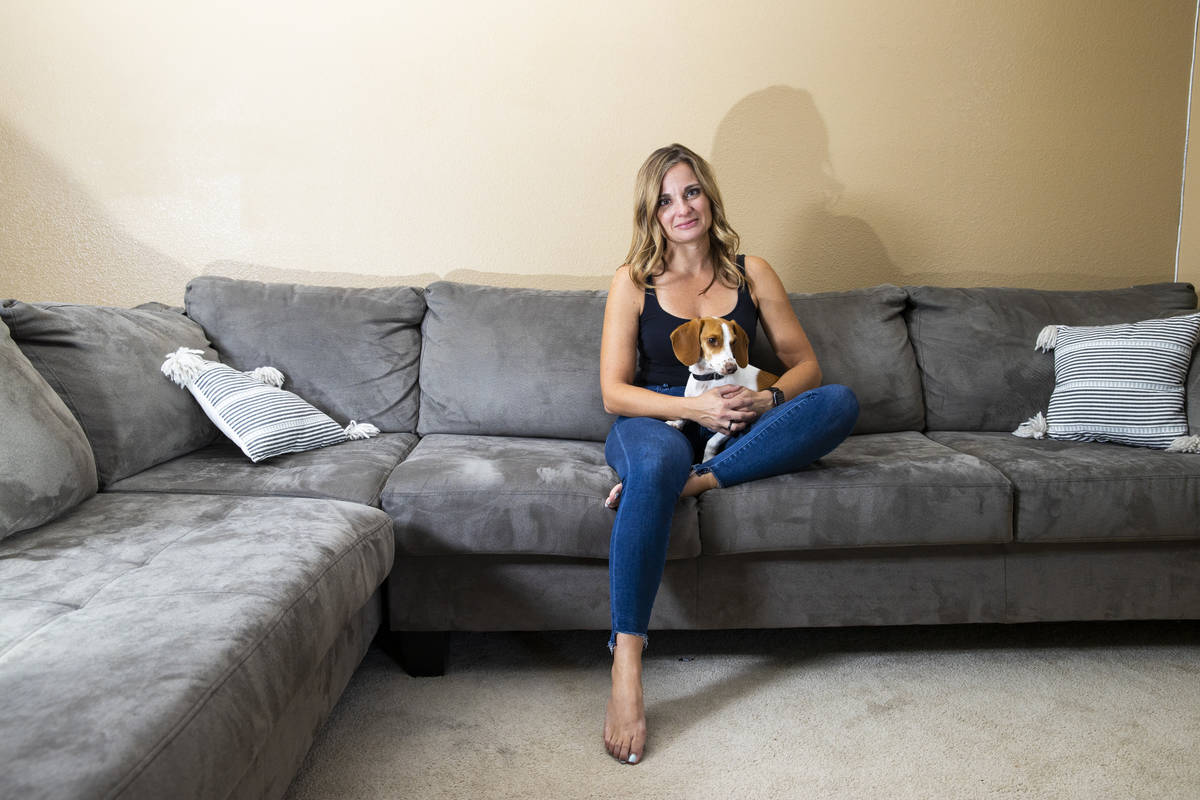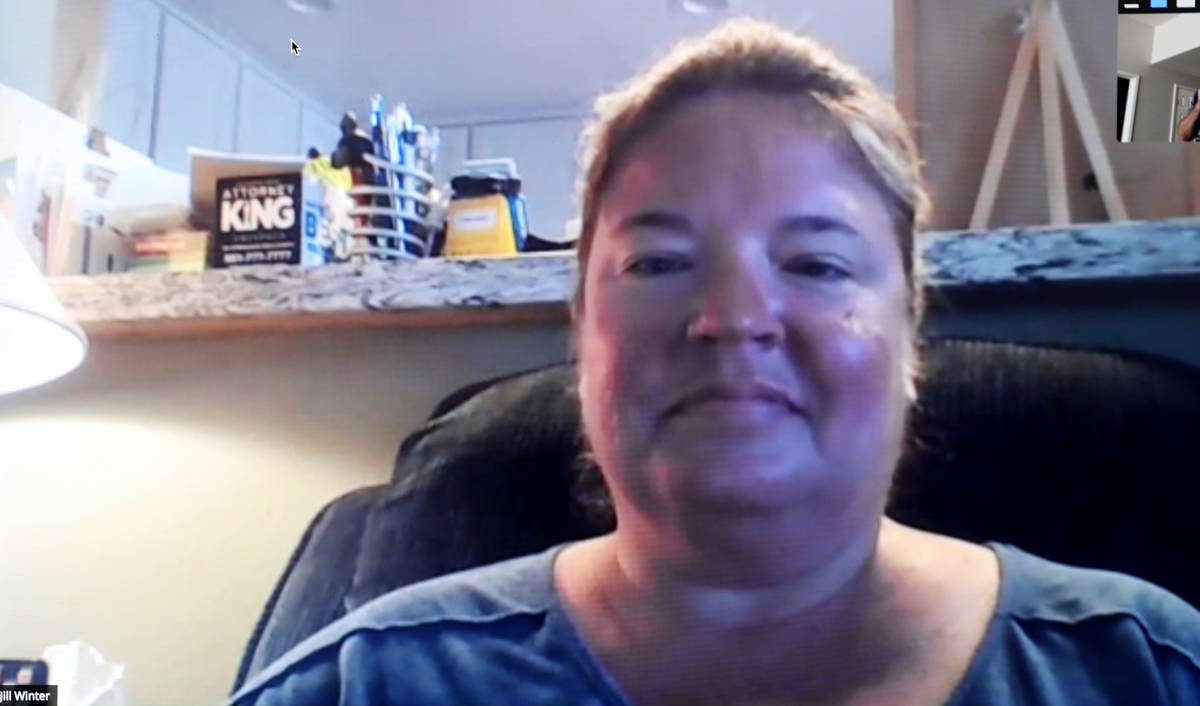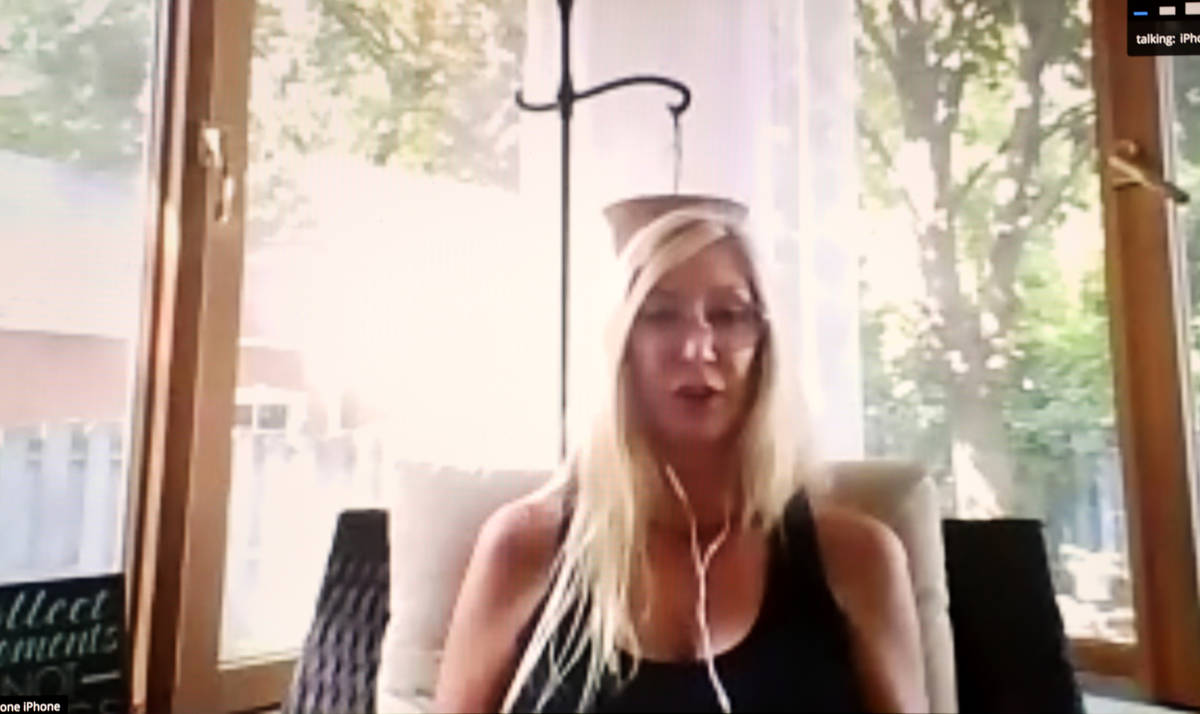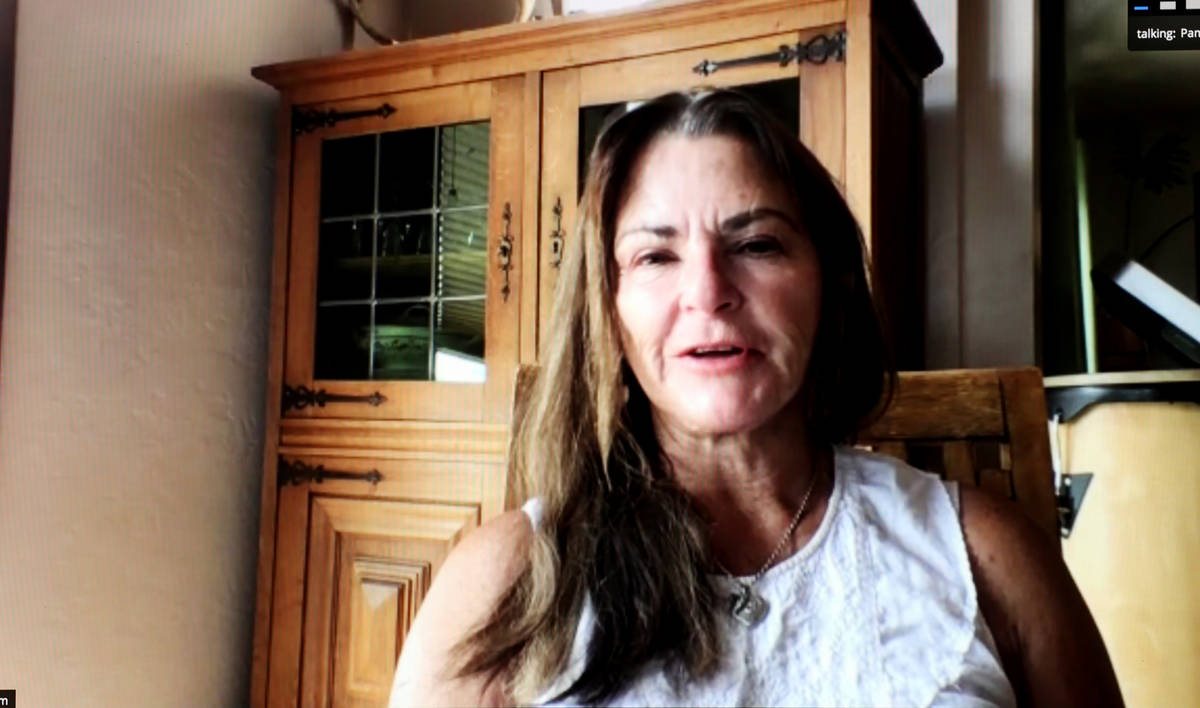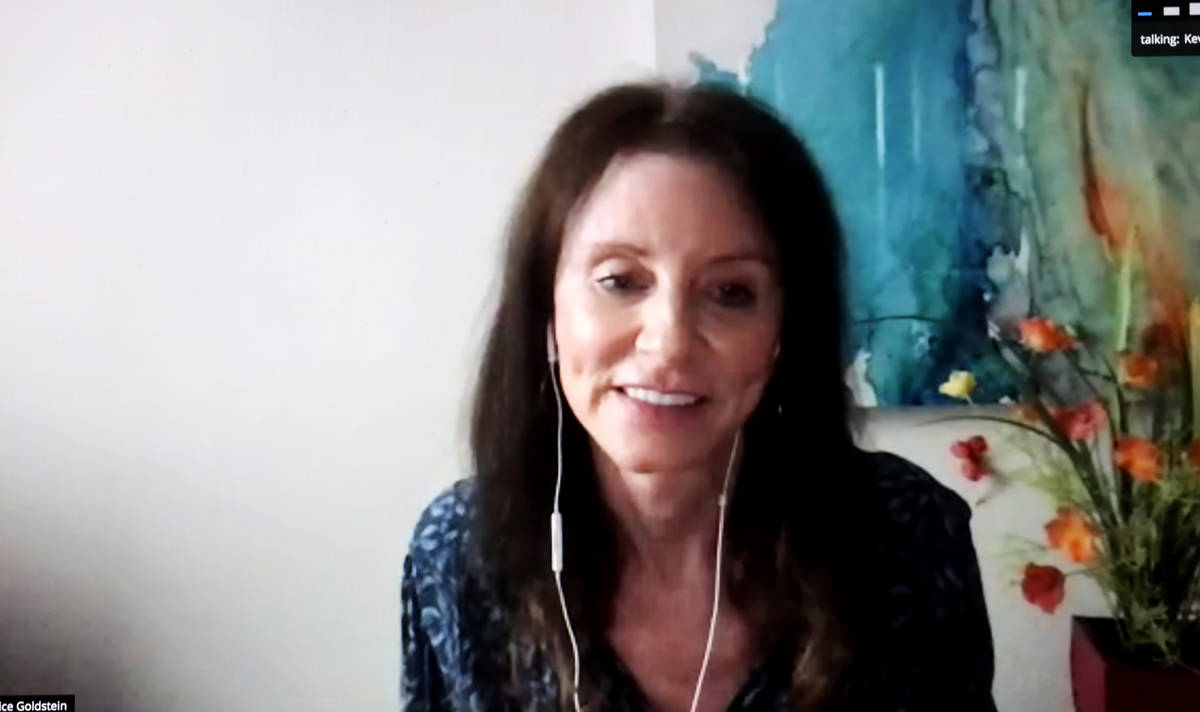Resiliency Center now virtually helps Route 91 shooting survivors
Before their group session, three Route 91 survivors logged in to the Vegas Strong Resiliency Center via Zoom.
It’s what weekly group therapy sessions look like now, during a pandemic. On a Wednesday, Pam Lane and Jill Winter signed in from opposite ends of California. Cyndi Spurloc was in Michigan.
It was just a week ahead of the third anniversary of the Route 91 Harvest festival shooting, and their minds were in the same place, even though they couldn’t meet in person.
“It’s really kind of a lifeline that, for a while, I didn’t even know I needed,” Spurloc said.
All three women were in Las Vegas on Oct. 1, 2017, when a gunman rained bullets into the crowd from a window at Mandalay Bay, killing 60 and injuring hundreds more.
Thousands — from all over the world — may have come out unscathed, physically, but have been grappling with mental wounds of their own. The compounding triggers of isolation and quarantine and the protests against police brutality make this anniversary especially hard.
The Vegas Strong Resiliency Center, which now has more than 10,000 people in its system, opened shortly after the shooting to provide support and resources to survivors and relatives of those who died.
And even though the center in January moved into a new, larger space for more in-person meetings, it hasn’t been put to use much. Because of the coronavirus pandemic, everything has transitioned online.
Though virtual sessions had been in the works at the center, the pandemic reinforced the need for them and kicked them into gear in April. Some survivors have even reached out for the first time.
“We’ve had people all over the country, even Canada, participate that wouldn’t have been able to before,” said the center’s director, Tennille Pereira.
“We’re getting two different messages from survivors: One is, ‘We miss that human connection,’ and the other is kind of unexpected, with survivors saying, ‘We really like being able to stay home, and we feel more safe and secure now that we don’t have to go out in public anymore.’ ”
A need to connect
During the free virtual afternoon session, facilitator Alice Goldstein introduced a tool to help the survivors feel grounded, and the women talked about their plans for the anniversary.
Spurloc, who lives in Michigan, said she joined the group because she’s so far away and was desperate to connect with other people who had been there.
Lane said the group has helped her, especially when the wildfires in Northern California triggered her anxiety.
“It brought me right back,” Lane said. “When I say, ‘I’m back,’ they know what I’m back there to. And they all reach out to me, and it surrounds my heart with this warm, fuzzy kind of thing.”
Goldstein, who volunteers to facilitate the group, is a life coach and was a licensed counselor for 21 years. She makes herself available to the group even outside the allotted meeting time.
“Everybody is raw right now,” she said. “There are a lot of people all over the world that were there, that need somebody, that need to feel connected.”
The pandemic and state of the nation add an extra layer.
Winter said that when the lockdown happened, and when protests against police brutality erupted, including a protest in which businesses had been destroyed, she “was pretty much paralyzed.”
One day, to clear her mind, she decided to attend a drive-thru birthday party for another survivor who lives about an hour and a half from her.
“Just seeing everybody’s faces, even though we couldn’t hug, there was like a huge weight lifted off my shoulders,” she said.
Spurloc said she felt that the rest of the world had post-traumatic stress disorder, too.
“When COVID hit and people were locked in, I felt peace, like I felt like the world was a safer place,” she said. “It’s a bizarre phenomenon.”
Those in the group session underscored the importance of seeking help during these difficult times, as certain events can bubble everything up.
“What happened to us was not our fault. But our healing is our responsibility,” Winter said.
Not so alone
For Christina Gruber, who is from Las Vegas, the virtual sessions were helpful to her when she was laid off because of COVID-19 in June.
After talking with other survivors in the group, she said she was able to, for the first time, find a therapist that worked for her.
She said that when she’s spiraling, she learned to picture the color white, which makes her feel calm. She imagines the light entering through her crown and filtering through her body and grounding her.
Gruber has since started a new job and hasn’t had as much time to participate but is still having one-on-one sessions.
“I’ve lost that freeness, that happy-go-lucky-type living without worry,” she said. “Group sessions helped me not feel so alone in my thoughts and feelings.”
Running saved her life that night. When the shooting erupted, she ran to the Roman Catholic Shrine of the Most Holy Redeemer on Reno Avenue, where strangers used a belt as a makeshift tourniquet on her bleeding left leg.
The mother of two had 10 pieces of shrapnel in her right leg and about eight in her left leg.
She had the final piece removed last year and has been gaining strength to participate in triathlons. She will race in her first Ironman next year.
On the anniversary, she planned to get a tattoo on her wrist that reads, “Faith over fear.”
“I feel like I’m ready to share, to kind of accept what’s happened,” she said. “And take ownership of it and use it for good.”
Contact Briana Erickson at berickson@reviewjournal.com or 702-387-5244. Follow @ByBrianaE on Twitter.
Support for survivors
Those seeking mental health services may call the Vegas Strong Resiliency Center at 702-455-2433 or visit vegasstrongrc.org.
There will be a special online meetup for the third anniversary of the shooting, and those interested may do so via eventbrite at eventbrite.com/e/1-october-online-meet-up-tickets-122428110775
Related
'Forever Strong' license plate assists Oct. 1 survivors



